第12章 Chapter 2(7)
Thus the labour of man created wealth; but wealth, in its turn, created the labour of man. Wherever wealth offered a profit, a wage, a subsistence, it produced a class of men, eager to acquire them. The accumulation of primary labour had created the value of land, by unfolding its productive power. This power, as it seconded the labour, of man, henceforth became a species of wealth; and a person possessed of land might, without himself labouring, obtain payment for surrendering the use of it to such as laboured. Hence the origin of sales and leases of land. The farmer again might hire workmen to labour, and thus might acquire the advantages attached to exchanging present subsistence against distant produce. He incurred all the charges of cultivation, he drew all its profits, and left to his workmen nothing but their wages. Thus the revenues of land, all comprised in the annual crop, were divided among three classes of men, under the name of rent, profit, and wages; whilst a surplus included the seed and the farmer's advance.
The manufacturer again possessed machinery and materials: he offered to his labourers an immediate subsistence for the fruit of a labour which required time and long advances. He enabled them to live, he furnished them with lodging, tools, machinery, and paid himself with interest by their work. If, in his own hand, he had not enough of accumulated wealth, or enough of the money which represents it, to provide his workmen with all the advances which their enterprise required, and to wait for the sale of their labour, he borrowed money, and paid the lender an interest, analogous to the rent which a farmer pays his landlord.
The labour of the workmen employed by him annually produced a certain quantity of goods, in the value of which were to be included the interest of capital for the money-lender, the rent of implements, machines, immovables, and all kinds of fixed capital; the profits of the head manufacturer, the wages of his workmen, and, lastly, the capital expended in raw materials, together with the whole of that capital which, as it circulates annually in the manufactory, must be deducted from its annual produce, in order to leave the net revenue.
The produce of the soil and of manufactories belonged often to climates very distant from those inhabited by their consumers.